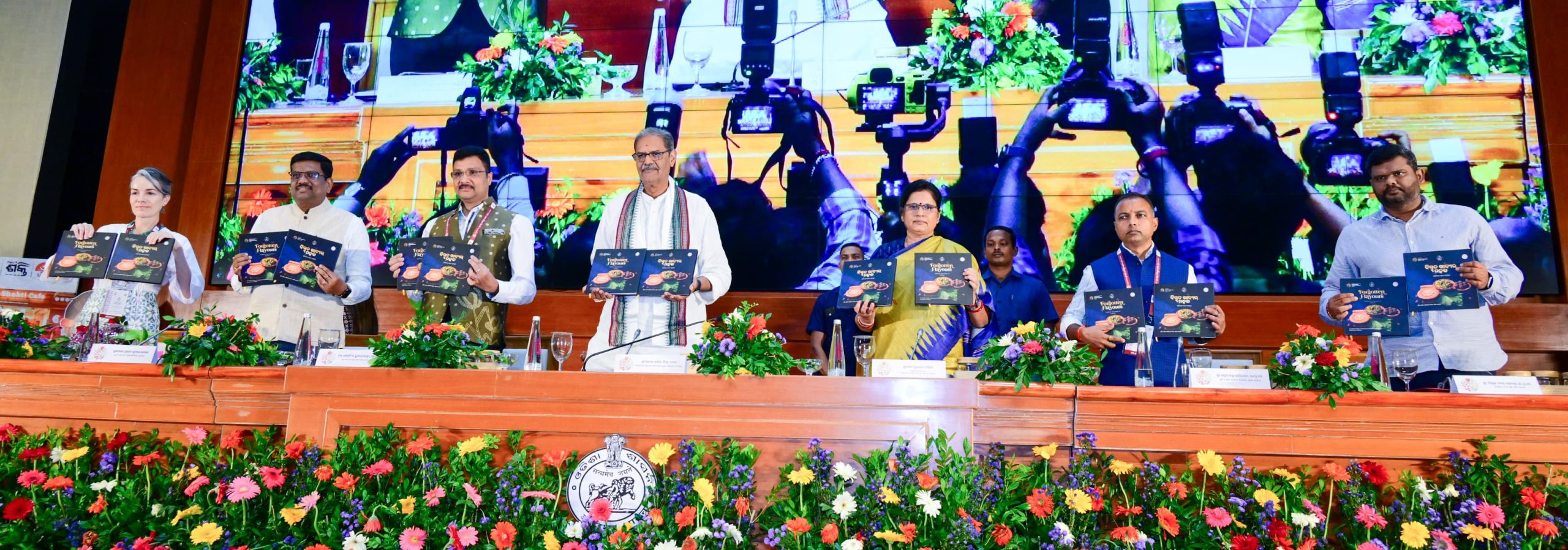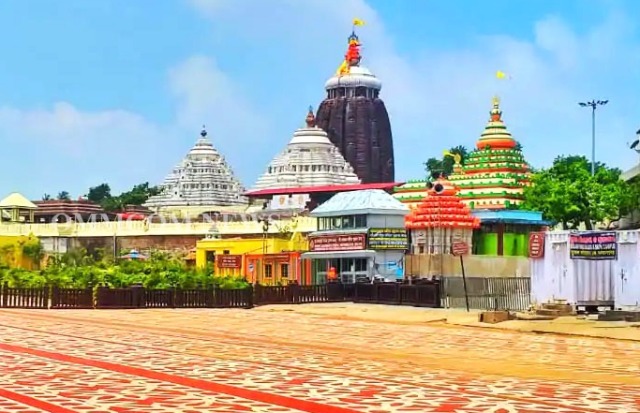Bhubaneswar: The two-day International Symposium on Shree Anna & Forgotten Foods (ISSFF), organized by the Department of Agriculture and Farmers’ Empowerment, Government of Odisha, concluded on a high note with commendations and valuable suggestions from state, national, and international participants. The event, held at Lok Seva Bhavan, focused on creating a roadmap for the promotion of Shree Anna (millets) and other neglected crops in Odisha.
Kanak Vardhan Singh Deo, Deputy Chief Minister and Minister of Agriculture, Farmers’ Empowerment, and Energy, Odisha, addressed the gathering during the closing ceremony. He emphasized the importance of reviving traditional and resilient crops to strengthen sustainable agriculture and ensure food security for the state and beyond. “Let us carry forward the insights gained here to strengthen sustainable agriculture and food security for Odisha and beyond,” he said.
Deputy Chief Minister Pravati Parida, who also spoke at the event, highlighted the significance of millets, or Shree Anna, as both a heritage and a future food source. “Millets are more than just food; they are our heritage and our future. To see them flourish again, we must bring them back to every family’s plate,” she stated. She also noted the role of women, especially mothers, in this revival. Through initiatives like Millet Shakti Cafes and the Millet Mother campaign, Odisha is empowering communities to reconnect with these climate-smart crops. The state currently hosts 33 Millet Cafes, 263 Millet Tiffin Centres, and 177 blocks with millet-based Mission Shakti and Women’s Self-Help Groups (WSHGs).
On the second day of the symposium, five sessions explored diverse themes such as marketing and entrepreneurship in neglected crops, community best practices in organic cultivation, promoting suitable crops for large-scale cultivation, sustainability for Millet Service Centres (MSC), and engaging communities with forgotten foods. The day also featured an interactive quiz on forgotten foods, which saw enthusiastic participation from attendees.
The event’s theme, “Celebrating Shree Anna & Agricultural Heritage of Odisha,” brought together experts who emphasized the importance of forgotten food crops for climate resilience, sustainable farming, and nutrition. These crops, known for being drought- and pest-resistant, thrive in Odisha’s local conditions with minimal inputs, making them ideal for sustainable agriculture and preserving the region’s agricultural heritage.
The symposium attracted a diverse range of stakeholders, including Women’s Self-Help Groups (WSHGs), Farmer Producer Organizations (FPOs), policymakers, international organizations such as the Food and Agriculture Organization (FAO), World Food Programme (WFP), and M.S. Swaminathan Research Foundation (MSSRF), among others. Their collective aim was to formulate a roadmap for promoting Shree Anna and forgotten foods, with a focus on sustainable agricultural practices, agro-biodiversity conservation, market opportunities, and policy perspectives.
Nine stalls were set up at the venue, showcasing the diversity and potential of neglected crops, millets, pulses, seeds, leafy vegetables, and farm tools, offering participants a glimpse of both traditional and innovative agricultural practices.
During the valedictory ceremony, three publications were released: Forgotten Flavours – Culinary Treasures of Odisha (a recipe book on forgotten foods), Adi Anna (a millet-based recipe book), and Comprehensive Rice Fallow Management (a coffee table book). The session also featured a magic show by former Agriculture Department Officer Anupam Ghosh and a quiz contest on millet and forgotten foods, with gift hampers awarded to the winners.
The symposium also recognized the contributions of various Self-Help Groups (SHGs) and Farmer Producer Organizations (FPOs) that have excelled in millet-based enterprises and marketing neglected crops. Outstanding SHGs like Maa Basundhara Mahasangha BLF (Kalahandi), Rajput GPLF (Koraput), and Shradhanjali SHG (Keonjhar) were honored for their achievements in promoting millets. In addition, top-performing FPOs such as Jaivik Sri FPCL (Koraput) and Udanti FPCL (Nuapada) were awarded for their contributions to millet cultivation.
The event was attended by several dignitaries, including Elisabeth Faure, Country Head of the World Food Programme, Dr. Arabinda Kumar Padhee, Principal Secretary of the Department of Agriculture and Farmers’ Empowerment, and Prof. Pravat Kumar Roul, Vice-Chancellor of OUAT.
Through this symposium, the Government of Odisha has reaffirmed its commitment to preserving its agricultural heritage while fostering a future of sustainable farming and food security.





